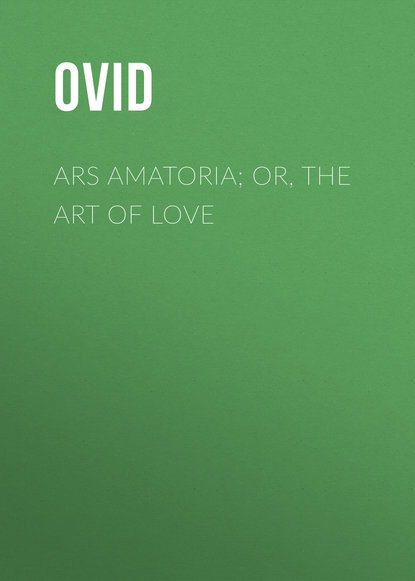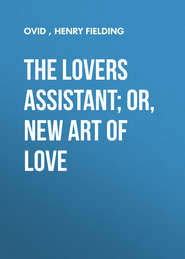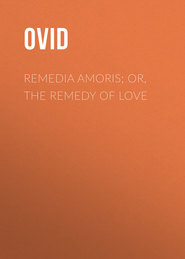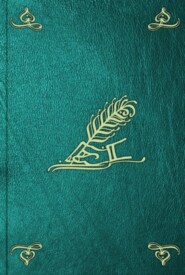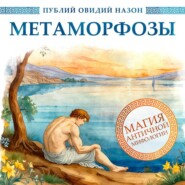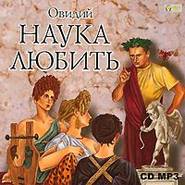По всем вопросам обращайтесь на: info@litportal.ru
(©) 2003-2024.
✖
Ars Amatoria; or, The Art Of Love
Настройки чтения
Размер шрифта
Высота строк
Поля
[ From the side.—Ver. 576. See the Amores, Book i. EL iv. 1. 32.]
797 (return (#x1_x_1_i64))
[ Touched with her fingers.—Ver. 577. The ancients are supposed not to have used at meals any implement such as a knife or fork, but merely to have used the fingers only, except in eating soups or other liquids, or jellies, when they employed spoons, which were denoted by the names 'cochlear' and 'ligula.' At meals the Greeks wiped their fingers on pieces of bread; the Romans washed them with water, and dried them on napkins handed round by the slaves.]
798 (return (#x1_x_1_i64))
[ Are drinking by lot.—Ver. 581. The 'modimperator,' or 'master of the banquet,' was often chosen by lot by the guests, and it was his province to prescribe how much each person should drink. Lots were also thrown, by means of the dice, to show in what order each person was to drink. This passage will show the falsity of his plea in the Second Book of the Tristia, addressed to Augustus, where he says that it was not his intention to address the married women of Rome, but only those who did not wear the 'vittæ' and the 'instita,' the badges of chastity.]
799 (return (#x1_x_1_i64))
[ Agent attends even too much.—Ver. 587. His meaning seems to be, that in the same way as the agent does more than attend to the injunctions of his principal, and puts himself in a position to profit by his office, so is the inamorato, through the confidence of the husband reposed in him, to make a profit that has never been anticipated.]
801 (return (#x1_x_1_i65))
[ Eurytion.—Ver. 593. At the nuptials of Pirithous and Hippoda-mia. See the Metamorphoses, Book xii. 1. 220, where he is called Eurytus.]
802 (return (#x1_x_1_i65))
[ Stealing up.—Ver. 605. This piece of impudence he professes to practise in the Amores, Book i. El iv. l. 56.]
803 (return (#x1_x_1_i67))
[ Bird of Juno.—Ver. 627. This fact, in natural history, was probably known only to Ovid, or the peacocks of the present day may be less vain than the Roman ones. See the Metamorphoses, Book i. 1. 723.]
804 (return (#x1_x_1_i68))
[ That there should be Gods.—Ver. 637. This was the avowed opinion of some of the philosophers and atheists of antiquity. We learn from Tertullian that Diogenes, being asked if the Gods exist, answered that he did not know anything about it, but that they ought to exist. The doctrine of the Epicureans was, that the Gods lived a happy and easy life, were not susceptible of anger, and did not trouble themselves about men.]
805 (return (#x1_x_1_i69))
[ Went to Busiris.—Ver. 649. See the Tristia, Book iii. El. xi. 1. 39, where the story of Phalaris is also referred to. Thrasius was the brother of Pygmalion, and was justly punished by Busiris for his cruel suggestion.]
806 (return (#x1_x_1_i70))
[ Phoebe suffered—Ver. 679. See the story of the rape of Phoebe, by Castor and Pollux, in the Fasti, Book v. 1. 699.]
807 (return (#x1_x_1_i71))
[ Work-baskets.—Ver. 693. See the Note to the seventy-third line of the Ninth Epistle.]
808 (return (#x1_x_1_i72))
[ Heroines of olden times.—Ver. 713. Such as Danaë, Europa Seraele, Alcmena, Io, Calisto, Antiope, Maia, Electra, and others.]
809 (return (#x1_x_1_i72))
[ Chaplet of Pallas.—Ver. 727. A crown of olive was presented to the victors in the athletic exercises at the Olympic games.]
810 (return (#x1_x_1_i73))
[ Love for Lyrice.—Ver. 731. If Lyrice here is a female name, it is not known who she was.]
811 (return (#x1_x_1_i73))
[ Daphnis.—Ver. 732. He was a Sicilian, the son of Mercury; and the inventor of Bucolic poetry.]
812 (return (#x1_x_1_i74))
[ Pylades.—Ver. 745: Hermione was the wife of Orestes, the friend of Pylades.]
813 (return (#x1_x_1_i75))
[ With a dart.—Ver. 763. It appears by this, that it was the custom to take fish by striking them with a javelin Salmon ere foretimes caught in a similar manner at the present day.]
FOOTNOTES BOOK TWO
901 (return (#x2_x_2_i1))
[ Sing, 'Io Pean.'—Ver. 1. This was the usual cry of the hunters, who thus addressed Apollo, the God of the chase, when the prey had been captured iu the toils. See the Metamorphoses, Book iv. 1. 513.]
902 (return (#x2_x_2_i1))
[ Amyclæ.—Ver. 5. A town of Laconia. See the Metamorphoses, Book x. 1. 219, and the Note.]
903 (return (#x2_x_2_i2))
[ Erato.—Ver. 16. He addresses himself to this Muse, as her name was derived from the Greek 'love.' It has been suggested that he had another reason for addressing her, as she was thought to take pleasure in warfare, a state which sometimes, by way of variety, exists between lovers.]
904 (return (#x2_x_2_i3))
[ A bold path.—Ver. 22. This story is again related in the Eighth Book of the Metamorphoses.]
905 (return (#x2_x_2_i4))
[ Like oars.—Ver. 45. He aptly compares the arrangement of the main feathers of a wing to a row of oars.]
906 (return (#x2_x_2_i4))
[ Orion.'—Ver. 56. So in the Metamorphoses, Book v. 1. 206, he says to his son Icarus, 'Fly between both: and I bid thee neither to look at Bootes, nor Helice, nor the drawn sword of Orion.']
907 (return (#x2_x_2_i5))
[ Is angling.—Ver. 77. There is a similar passage in the Metamorphoses, 1. 216.]
908 (return (#x2_x_2_i5))
[ The Clarian God.—Ver. 80. See the Fasti, Book i. 1. 20, and the Note.]
797 (return (#x1_x_1_i64))
[ Touched with her fingers.—Ver. 577. The ancients are supposed not to have used at meals any implement such as a knife or fork, but merely to have used the fingers only, except in eating soups or other liquids, or jellies, when they employed spoons, which were denoted by the names 'cochlear' and 'ligula.' At meals the Greeks wiped their fingers on pieces of bread; the Romans washed them with water, and dried them on napkins handed round by the slaves.]
798 (return (#x1_x_1_i64))
[ Are drinking by lot.—Ver. 581. The 'modimperator,' or 'master of the banquet,' was often chosen by lot by the guests, and it was his province to prescribe how much each person should drink. Lots were also thrown, by means of the dice, to show in what order each person was to drink. This passage will show the falsity of his plea in the Second Book of the Tristia, addressed to Augustus, where he says that it was not his intention to address the married women of Rome, but only those who did not wear the 'vittæ' and the 'instita,' the badges of chastity.]
799 (return (#x1_x_1_i64))
[ Agent attends even too much.—Ver. 587. His meaning seems to be, that in the same way as the agent does more than attend to the injunctions of his principal, and puts himself in a position to profit by his office, so is the inamorato, through the confidence of the husband reposed in him, to make a profit that has never been anticipated.]
801 (return (#x1_x_1_i65))
[ Eurytion.—Ver. 593. At the nuptials of Pirithous and Hippoda-mia. See the Metamorphoses, Book xii. 1. 220, where he is called Eurytus.]
802 (return (#x1_x_1_i65))
[ Stealing up.—Ver. 605. This piece of impudence he professes to practise in the Amores, Book i. El iv. l. 56.]
803 (return (#x1_x_1_i67))
[ Bird of Juno.—Ver. 627. This fact, in natural history, was probably known only to Ovid, or the peacocks of the present day may be less vain than the Roman ones. See the Metamorphoses, Book i. 1. 723.]
804 (return (#x1_x_1_i68))
[ That there should be Gods.—Ver. 637. This was the avowed opinion of some of the philosophers and atheists of antiquity. We learn from Tertullian that Diogenes, being asked if the Gods exist, answered that he did not know anything about it, but that they ought to exist. The doctrine of the Epicureans was, that the Gods lived a happy and easy life, were not susceptible of anger, and did not trouble themselves about men.]
805 (return (#x1_x_1_i69))
[ Went to Busiris.—Ver. 649. See the Tristia, Book iii. El. xi. 1. 39, where the story of Phalaris is also referred to. Thrasius was the brother of Pygmalion, and was justly punished by Busiris for his cruel suggestion.]
806 (return (#x1_x_1_i70))
[ Phoebe suffered—Ver. 679. See the story of the rape of Phoebe, by Castor and Pollux, in the Fasti, Book v. 1. 699.]
807 (return (#x1_x_1_i71))
[ Work-baskets.—Ver. 693. See the Note to the seventy-third line of the Ninth Epistle.]
808 (return (#x1_x_1_i72))
[ Heroines of olden times.—Ver. 713. Such as Danaë, Europa Seraele, Alcmena, Io, Calisto, Antiope, Maia, Electra, and others.]
809 (return (#x1_x_1_i72))
[ Chaplet of Pallas.—Ver. 727. A crown of olive was presented to the victors in the athletic exercises at the Olympic games.]
810 (return (#x1_x_1_i73))
[ Love for Lyrice.—Ver. 731. If Lyrice here is a female name, it is not known who she was.]
811 (return (#x1_x_1_i73))
[ Daphnis.—Ver. 732. He was a Sicilian, the son of Mercury; and the inventor of Bucolic poetry.]
812 (return (#x1_x_1_i74))
[ Pylades.—Ver. 745: Hermione was the wife of Orestes, the friend of Pylades.]
813 (return (#x1_x_1_i75))
[ With a dart.—Ver. 763. It appears by this, that it was the custom to take fish by striking them with a javelin Salmon ere foretimes caught in a similar manner at the present day.]
FOOTNOTES BOOK TWO
901 (return (#x2_x_2_i1))
[ Sing, 'Io Pean.'—Ver. 1. This was the usual cry of the hunters, who thus addressed Apollo, the God of the chase, when the prey had been captured iu the toils. See the Metamorphoses, Book iv. 1. 513.]
902 (return (#x2_x_2_i1))
[ Amyclæ.—Ver. 5. A town of Laconia. See the Metamorphoses, Book x. 1. 219, and the Note.]
903 (return (#x2_x_2_i2))
[ Erato.—Ver. 16. He addresses himself to this Muse, as her name was derived from the Greek 'love.' It has been suggested that he had another reason for addressing her, as she was thought to take pleasure in warfare, a state which sometimes, by way of variety, exists between lovers.]
904 (return (#x2_x_2_i3))
[ A bold path.—Ver. 22. This story is again related in the Eighth Book of the Metamorphoses.]
905 (return (#x2_x_2_i4))
[ Like oars.—Ver. 45. He aptly compares the arrangement of the main feathers of a wing to a row of oars.]
906 (return (#x2_x_2_i4))
[ Orion.'—Ver. 56. So in the Metamorphoses, Book v. 1. 206, he says to his son Icarus, 'Fly between both: and I bid thee neither to look at Bootes, nor Helice, nor the drawn sword of Orion.']
907 (return (#x2_x_2_i5))
[ Is angling.—Ver. 77. There is a similar passage in the Metamorphoses, 1. 216.]
908 (return (#x2_x_2_i5))
[ The Clarian God.—Ver. 80. See the Fasti, Book i. 1. 20, and the Note.]





